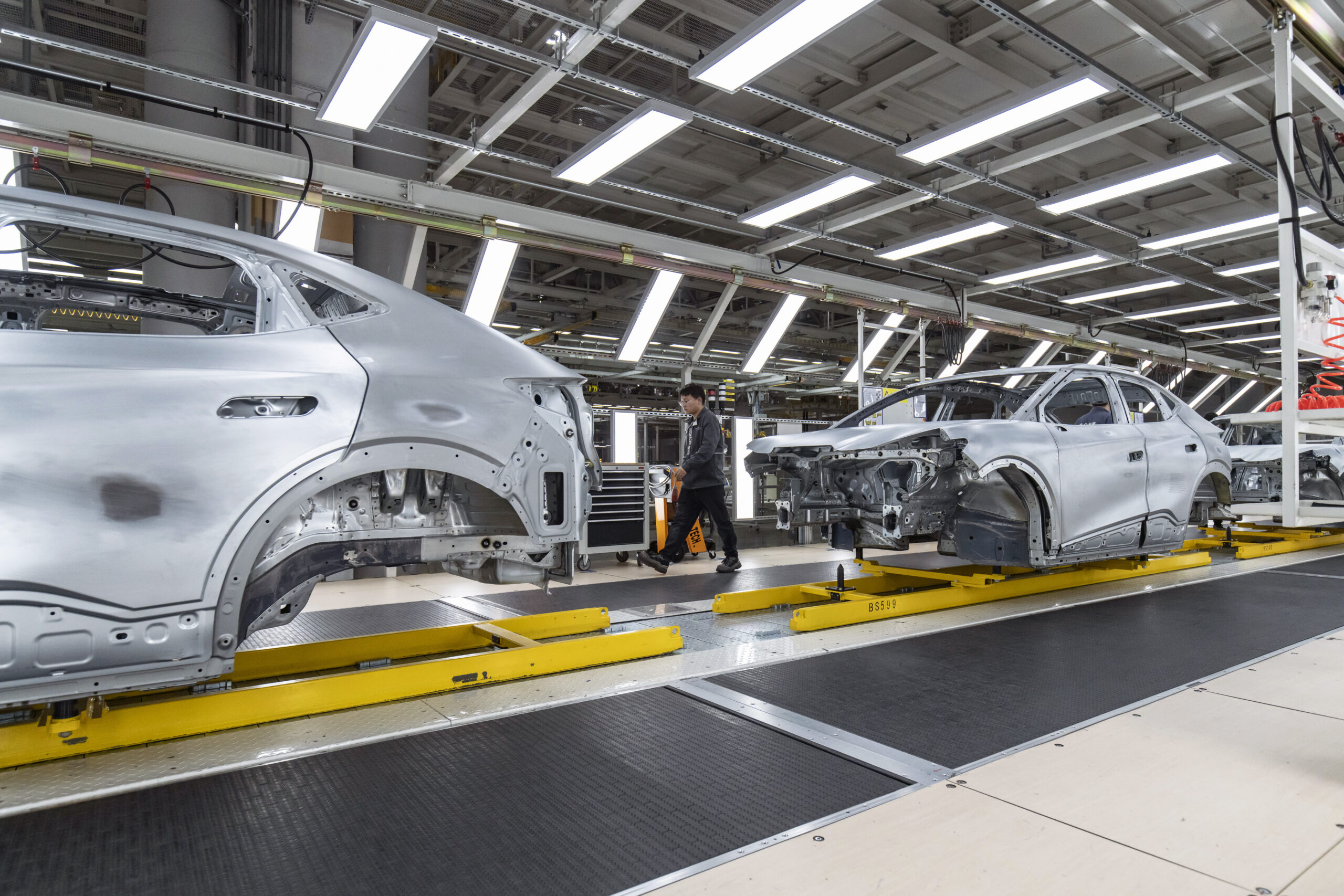As China’s political elite gathered for the annual National People’s Congress in Beijing last week, auto executives offered a range of ambitious policy proposals aimed at propelling the industry into the next era of smart mobility.
From flying cars to AI-controlled vehicles and revamped regulatory frameworks, the common thread was clear: cementing China’s position as a global powerhouse in the future of transportation.
Here are some of the main proposals presented:
AI and Autonomy
A consensus emerged among industry leaders: artificial intelligence and autonomous driving are no longer futuristic concepts but strategic imperatives. Xiaomi Corp. founder and Chief Executive Officer Lei Jun, who has led the smartphone maker’s successful push into electric cars, advocated for AI standards system and stricter regulations on AI-generated deepfakes.
The push for autonomous driving was equally pronounced by Lei and Xpeng Inc. CEO He Xiaopeng, with calls for accelerated nationwide testing, clearer regulatory guidelines, and even dedicated insurance products.
Market leader BYD Co. upped the ante on advanced driver assistance last month when it made its ‘God’s Eye’ technology a standard feature in most of its cars, including some of its cheapest options.
The lack of clarity on liability in accidents involving driver-assistance tech, coupled with the difficulty of assessing risks associated with sophisticated AI systems, has created a significant hurdle. A standardized framework for determining liability and possible collaboration between car makers and insurers is essential to build consumer confidence and accelerate the adoption of such technology, executives said.
Flying Cars
Electrification is already a cornerstone of China’s auto strategy, but there were calls for further expansion into aerial mobility. Proposals from Xpeng’s He and GAC Group Chairman Feng Xingya highlighted the convergence of electric vehicles with the so-called low-altitude economy, envisioning a seamless integration of flying cars and smart roads with certified pilots.
EVOTLs, or electric vertical take-off and landing aircraft, are regarded as an essential part of China’s push into the low-altitude economy, which also includes things like delivery drones. In an unusual move that highlighted the seriousness of the government’s intentions in this area, Beijing in December created a Low-Altitude Economy Development Department, supervised by the National Development and Reform Commission, and included the sector in this year’s government report.
Automakers are drawn to flying cars as a means to alleviate urban congestion and unlock new transportation efficiencies. It could turn into a lucrative new market, given the strong crossover with car manufacturing and its supply chains.
Xpeng plans to start mass production of its flying car model in 2026, He said Sunday on the sidelines of the NPC.
Going Global
Beyond domestic advancements, the aggressive global ambitions of China’s auto executives were also on display. A concerted push for exports and overseas market penetration was evident, with proposals like Changan Automobile Co.’s Chair Zhu Huarong’s call for a unified overseas market database.
The need for a cohesive strategy to navigate diverse international regulations, cultural nuances and competitive landscapes — echoed by Zhang Xinghai, chair of one of Huawei’s manufacturing partners Seres — may lift the burden of individual companies, as Chinese automakers aim to transition from being primarily manufacturers to becoming global technology and brand leaders.
Left Field Ideas
While most of the policy proposals focused on the future of the auto industry, some were more esoteric.
Xpeng’s He, a long-time advocate of advanced assisted driving, also championed the rollout of L3-level humanoid robots and the deployment of low-speed autonomous parking in garages.
Xiaomi’s Lei, drawing on his company’s tech prowess and consumer goods insights, emphasized the importance of interconnectivity between vehicles and other smart devices, drawing parallels with the smart home ecosystem.
He also raised a consumer-centric issue, asking for a review of new energy vehicle license plate designs, a topic that resonates with the practical concerns of car buyers. Electric car plates in China are often green, but Lei suggested black and white would look much better from a design point of view.
Some executives even addressed broader societal issues. Changan’s Zhu championed flexible work arrangements and corporate tax incentives to encourage marriage and childbirth and to tackle China’s shrinking and aging population. Geely Automobile Holdings Ltd. Chairman Li Shufu, meanwhile, called for a diversified and tailored education from junior high school onwards.
Top photo: The production line at the Volkswagen Anhui Automotive Co. factory in Hefei, Anhui Province, China, on Thursday, March 28, 2024. Volkswagen AG warned of a difficult year ahead as the German carmaker expects to fall further behind in its key market China, where a bruising price war is hurting returns. Photographer: Qilai Shen/Bloomberg.
Was this article valuable?
Here are more articles you may enjoy.


 Walmart to Pay $100 Million to Settle FTC Case on Driver Wages
Walmart to Pay $100 Million to Settle FTC Case on Driver Wages  Gas-Guzzler Revival Risks Dead-End Future for US Automakers
Gas-Guzzler Revival Risks Dead-End Future for US Automakers  Stellantis Weighs Using China EV Tech for Affordable Cars
Stellantis Weighs Using China EV Tech for Affordable Cars  Tesla’s Austin Robotaxis Report 14 Crashes in First Eight Months
Tesla’s Austin Robotaxis Report 14 Crashes in First Eight Months 